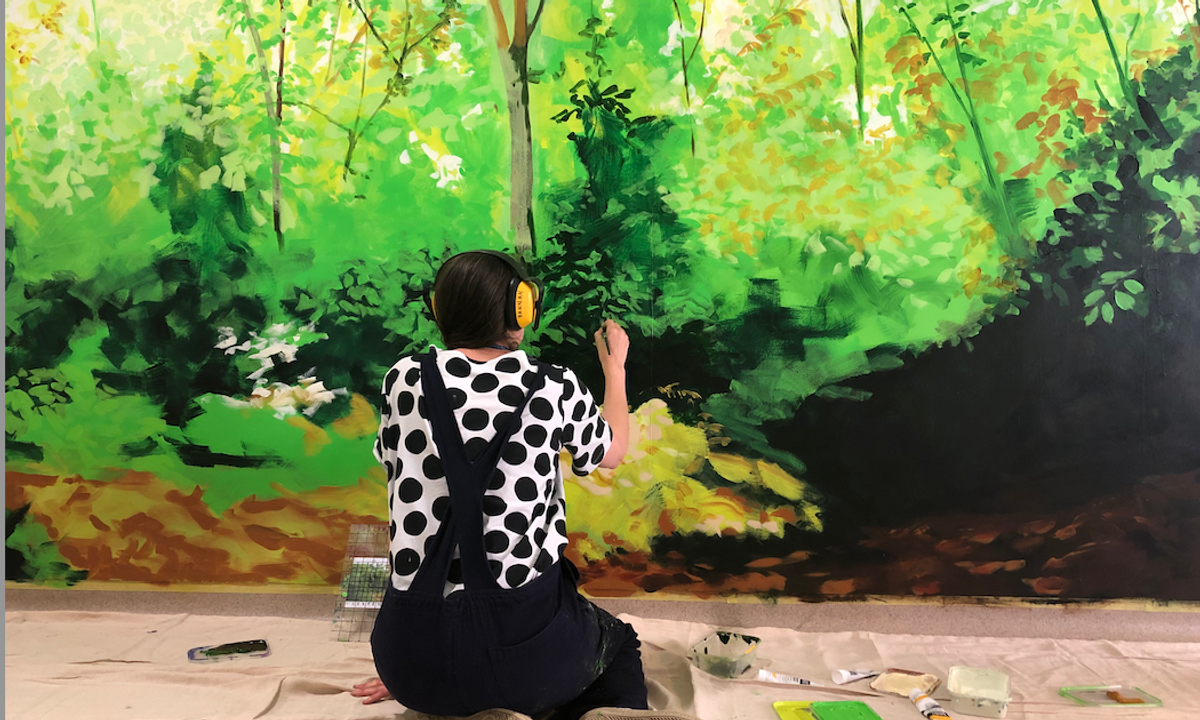
The Lancet medical journal has announced the biggest scientific research project ever conducted exploring the links between health and the arts. Compiled at a time when interest in the topic has been intensifying, the series aims to drive further investment in programmes for improving people’s health through the arts.
The series is led by the Jameel Arts & Health Lab and the World Health Organisation (WHO) and is due to be published in early 2025. Pending peer review, the series will consist of four papers and one photo essay written by a team of more than 50 researchers from universities including University College London, Harvard University, University of Malawi and Hong Kong University.
Recent studies have demonstrated that the arts can alleviate symptoms of postpartum depression, help manage pain and reduce anxiety. The Lancet series will build on a 2019 WHO report on the role of the arts in improving health and wellbeing. Papers will reference art forms including dance, drama, music and the visual arts, and provide policy recommendations helping governments devise new arts and health programmes or scale up existing ones.
“The arts must be seen as both central to the human experience and important in the maintenance of good health,” said Miriam Lewis Sabin, the North American executive editor of the Lancet, when the project was launched during the WHO75 Wellbeing Concert at Carnegie Hall, on the sidelines of the UN General Assembly in New York in September. “This Lancet series will hopefully provide the foundation of evidence needed to ensure that the arts will be viewed as essential, in particular, to prevent and support people with noncommunicable diseases.”
The series will present the first comprehensive review of evidence for the relationship between the arts and noncommunicable diseases (NCDs) such as cancer, Parkinson’s and heart disease. It will include an analysis of population-wide studies showing what prevents people from accessing the arts, evidence for how engaging with the arts can influence behaviours such as tobacco and alcohol use, and an assessment of how creative art therapies can help people manage NCDs.
The Jameel Arts & Health Lab—which was launched in January by the WHO regional office in Europe, NYU Steinhardt School, Community Jameel and the London-based organisation Culturunners—aims to promote scientific research into the health benefits of the arts and drive policy implementation across all 193 United Nations (UN) member states. Stephen Stapleton, the founding director of Culturunners, says the Lancet series would help achieve those goals. “The collaboration with the WHO means there is a path for the recommendations to reach ministers of health and ministers of culture in UN member states,” he says.
Ian Koebner, who has conducted research into how museum visits can help relieve pain, says: “Anything [the Lancet] does has such extensive ripple effects within the healthcare sector, which means this series is likely to translate into greater interest in the arts and health among both healthcare organizations and other medical journals.”
A growing range of organisations are exploring the links between the arts and health. The New York City Health and Hospitals Corporation, the largest municipal healthcare system in the US, began collecting and commissioning art in the 1930s, when mural artists were hired to brighten up dreary waiting rooms and corridors. Now, its collection comprises more than 7,000 works, including signed lithographs by Robert Rauschenberg, a silk-screen of flowers by Andy Warhol and murals by Keith Haring.
In one of the New York network’s ongoing art and health programmes, mural artists collaborate with patients, staff and residents to create works on the walls of hospital facilities. In another, six artists in residence guide staff in weekly art-making sessions. Exhibitions of works from the network’s collection or those loaned from local museums are regularly organised at the hospitals. Larissa Trinder, the vice president of the network’s arts programmes, says evidence-based health and art programmes were aimed at both staff and patients. “If staff are supported and cared for they will provide better care,” she says.
Museums free on prescription
Doctors in Quebec can prescribe free visits to the Montreal Museum of Fine Arts (MMFA) as part of the Museum Prescriptions programme. Launched in 2018, the programme now involves 15 doctors and could soon be expanded, says Mélanie Deveault, the head of the MMFA’s Education and Wellness division. The findings of research conducted as part of the programme will be published by the end of the year, she says. A similar museum prescriptions programme was piloted in Brussels last year.
“The arts play such a vital role in our social health,” Stapleton says. “People are talking not just about saving the arts but putting them to work.”
